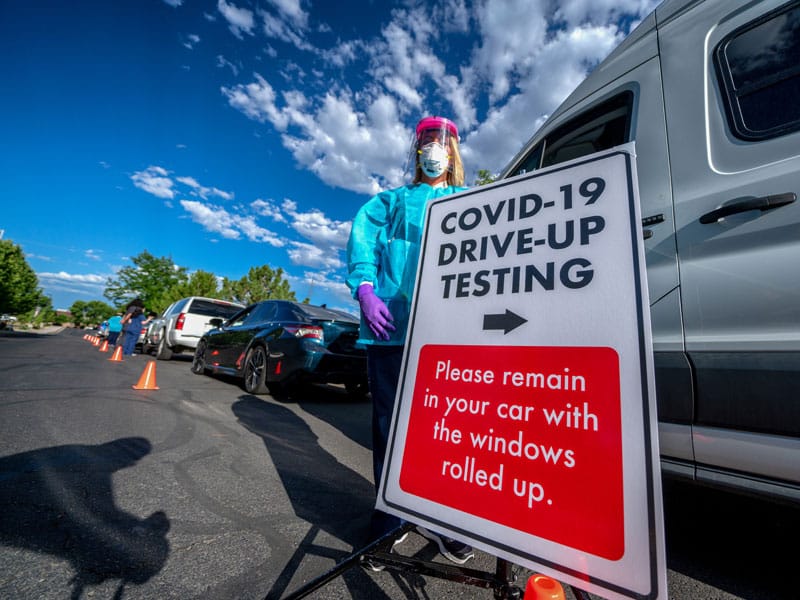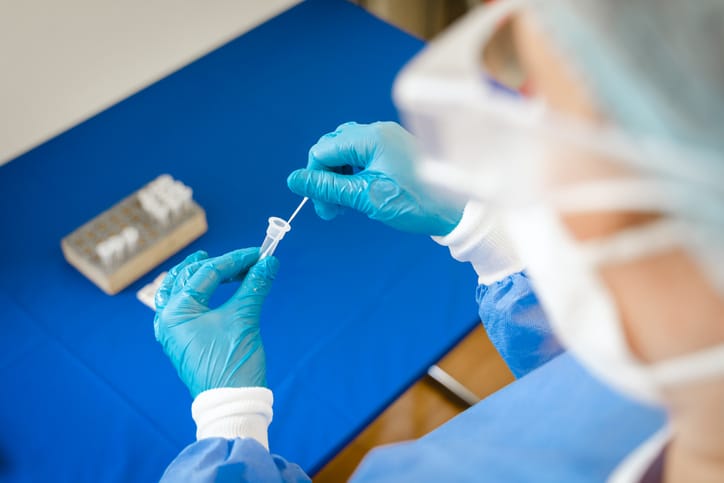No strain of the coronavirus has dominated the news like the Delta variant, a highly contagious mutation that is fueling a rise in COVID-19 cases and hospitalizations. As the pandemic continues to surge, you may wonder whether you can get a test to see which strain of the coronavirus you were exposed to.
That information isn’t readily available for much of the population, says Karen Roush, MD, vice-chair of pathology for Methodist Health System. Most COVID-19 tests are not designed to detect these molecular differences.
“That was purposeful, so we could identify COVID-19 even when the virus changes,” she explains. “There are some tests out there that look for known variants, but the problem with that is they won’t tell you if there’s something new.”
Instead, scientists largely rely on genome sequencing to identify and classify the emerging mutations of the virus. The process costs more time and resources. It also requires a certain amount of the virus to be present in the testing sample.
“From an individual patient’s perspective, knowing which variant caused the infection doesn’t really make any difference in the care or treatment that you receive,” Dr. Roush explains.
The area in which it matters more, she says, is research.
EXPERTS NEED TO KNOW
For epidemiologists, identifying different variants provides a treasure trove of valuable information.
It helps researchers understand how the virus is changing and how mutations affect the infection rate and severity of the disease, Dr. Roush says.
As of early August, health officials say Delta is the variant responsible for more than 90% of all COVID-19 cases in the U.S. — a meteoric jump from 3% in June, Dr. Roush says. This demonstrates that the genomic changes seen in Delta have led to changes in the way the virus invades and replicates in the body.
“The good news is that Delta does not seem to be substantially more severe in terms of disease or mortality,” she says.
Tracking the evolution of the virus also helps scientists measure the effectiveness of existing vaccines and their ability to protect those who have taken them.
And thanks to recent data, experts now know that fully vaccinated people who nonetheless get infected are capable of transmitting the virus to others.
“That’s why we’re seeing re-masking recommendations,” Dr. Roush says. “And that’s primarily to protect the people around us, including kids who don’t even have the luxury of being offered the vaccine right now if they’re under 12.”
While Delta has led to some breakthrough infections and symptomatic disease, all three authorized vaccines are still effective in preventing severe infections and death, Dr. Roush says.

THE BIGGER PICTURE
Various laboratories are performing genome sequencing of patients throughout the country. Coupled with findings from testing local wastewater sources, experts can puzzle together an aggregate picture.
According to epidemiologists, Delta is dominating the map of outbreaks, making it “the fittest” version of the coronavirus yet. It’s able to infect more people with smaller exposures.
“Because it is so transmissible, people are just not going to be able to avoid some sort of exposure,” Dr. Roush says.
Researchers will have to pay close attention to see what form, if any, the virus will take next and whether a more tailored vaccine will be needed to target the Delta variant.
But for now, COVID-19 patients who are curious about a specific variant don’t have to worry about how that affects their treatment.
“As of now, your care, wherever you go for COVID-19 treatments in the U.S., will be the same, regardless of the variant,” Dr. Roush says.


